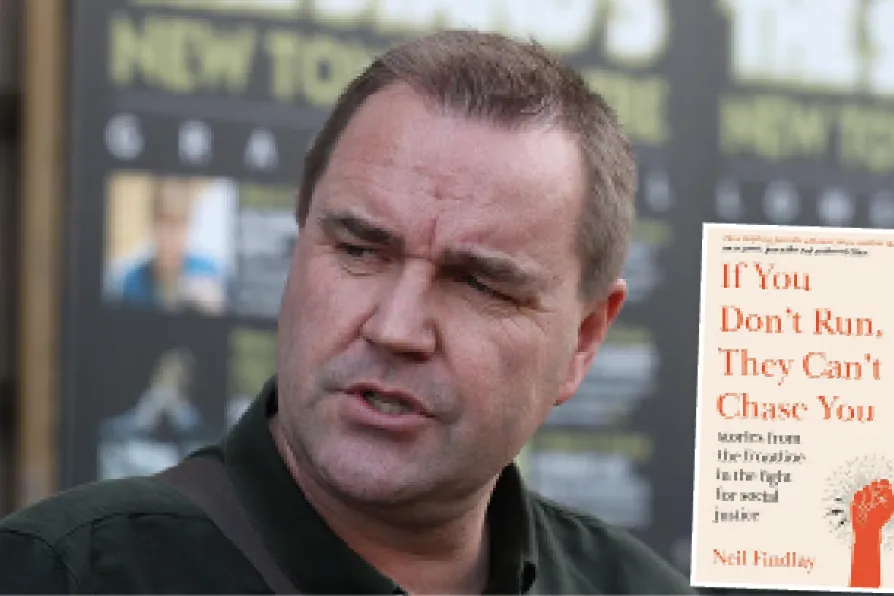REBECCA LONG BAILEY MP writes that it is time not just to adopt policies that will revitalise the lives of workers, but speak honestly and openly about whose side we are on and who the Labour Party is for: the millions, not the millionaires
How ordinary people become extraordinary – a window into the world of front-line struggle
Morning Star Scotland editor Niall Christie speaks to NEIL FINDLAY about his new book If You Don't Run, They Can't Chase You

 Neil Findlay and (inset) his new book
Neil Findlay and (inset) his new book
WHEN asked what the common theme throughout his new book is, Neil Findlay is clear – injustice.
“Ordinary people become extraordinary through their commitment and desire to see things done right,” he says, just months after stepping back from public life after 18 years.
But short of taking some well-deserved time off, the long-time socialist MSP and councillor is back putting the voices of the marginalised and oppressed to the fore. A collection of interviews and tales from the front line of the fight for social justice, If You Don’t Run, They Can’t Chase You brings together the stories of personal tragedy and anti-establishment campaigns which have been fought across Britain and beyond in the past 50 years.
More from this author

It is ‘unfathomable’ that staff are having to keep doors and windows open and ask pupils to layer up for a second winter, Scottish Teachers for Positive Change and Wellbeing says
Similar stories

With most of recorded history dominated by the voices of men, LYNNE WALSH encourages sisters to read the memoirs of women – and to write their own too

From prostitution to surrogacy, access to women’s bodies can be bought for a fee. LYNNE WALSH reports from a conference exploring the mounting crisis in which women are increasingly seen as products to be consumed













